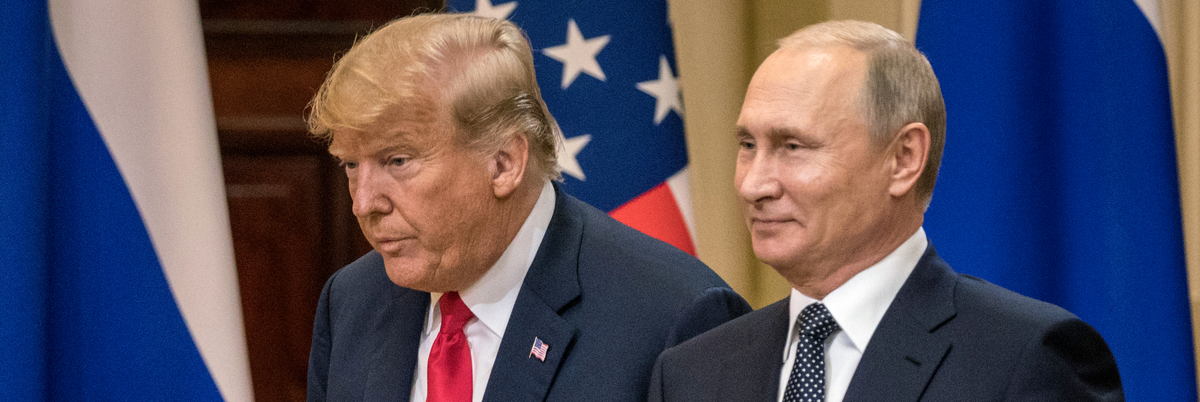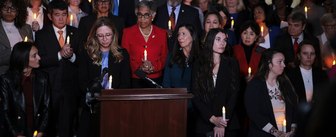Americans in the latest Economist/YouGov Poll believe the intelligence reports that Russia secretly offered militants in Afghanistan rewards for killing American troops, though many aren’t sure what to think. In fact, one in three (35%) claim they have not heard anything about this story.
Republicans believe the intelligence report by more than two to one (38% vs 18%); even more, Democrats are sure the report is true (68%).
President Donald Trump’s relationship with Russian President Vladimir Putin may not be helping him with the American public. About half (51%) disapprove of the way the president is handling Russia, while one-third (33%) approve. This could have larger implications: Americans this week do not have confidence in the president’s ability to handle an international crisis. One-third (34%) are confident, while most (54%) say they are uneasy about President Trump on this.
The last time The Economist/YouGov asked about Democrat Joe Biden’s ability to handle an international crisis was March 31. That data showed similar numbers: 37 percent of Americans were confident in Biden’s ability to handle an international crisis and 44 percent were uneasy.
While the public divides on whether Trump is a strong or a weak leader, there is little doubt about Putin’s strengths. By three to one (76% to 24%), Americans describe Putin as a strong leader. But that doesn’t mean they like him. Seven in 10 Americans (70%) have an unfavorable opinion of Putin, with just 11 percent favorable.
The relationship between Putin and Trump, which has been quite friendly, is not necessarily seen as a good thing for America. Less than a third describe it as good for the country, while 43 percent think it is bad. Republicans remain much more positive about the value of the two presidents’ relationship.
For most, Russia is viewed as a serious threat to the United States, though Republicans, like the GOP president, are less likely to see it as an immediate threat than the public overall is. Far more Americans have labeled Iran and North Korea as serious threats in Economist/YouGov Polls than say that this week about Russia. Democrats are also more likely to call Russia an “enemy” of the United States. Half (49%) of them say that, compared with just 29 percent of Republicans.
See the toplines and crosstabs from this week’s Economist/YouGov Poll
Methodology:The Economist survey was conducted by YouGov using a nationally representative sample of 1,500 U.S. adult citizens interviewed online between June 28 - 30, 2020. This sample was weighted according to gender, age, race, and education based on the American Community Survey, conducted by the US Bureau of the Census, as well as 2016 Presidential vote and registration status. Respondents were selected from YouGov’s opt-in panel to be representative of all US citizens. The margin of error is approximately 3.3% for the overall sample.
Image: Getty










